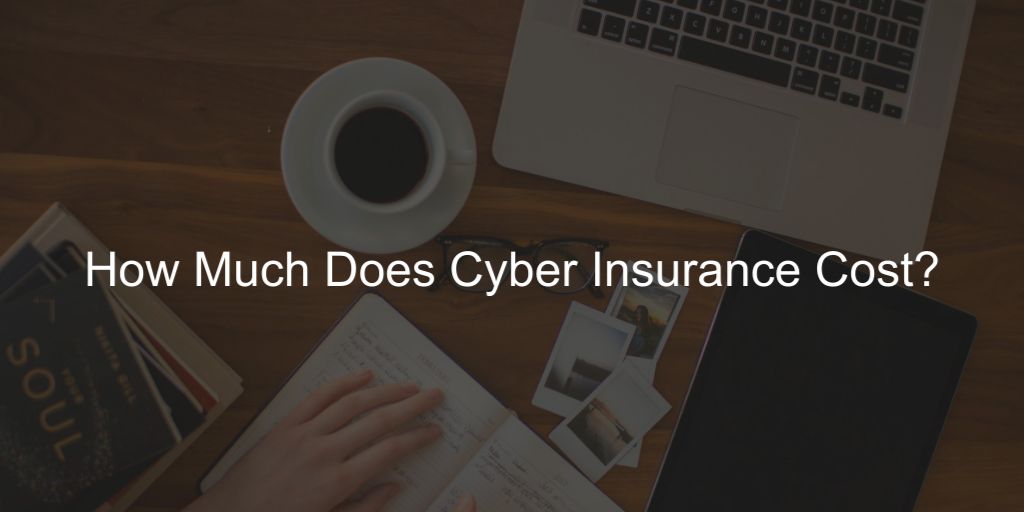
In 2022, the average cost of a data breach for businesses reached roughly $4.35 million.
With startling statistics like that, it’s no wonder that many businesses are beefing up their cyber security measures (many of whom opt to benefit from the expertise of a qualified managed IT service provider (MSP). But they’re also covering their potential losses with cyber security insurance.
But what is cyber security insurance exactly? Is it worth getting? And how much does cyber insurance cost?
In this blog, we’ll take an in-depth look into the pros and cons of cyber insurance, its cost relative to the fallout from a data breach and what you need to be aware of in order to choose your cyber liability coverage wisely.
What is Cyber Security Insurance?
Cyber security insurance (or just cyber insurance, for short) is a type of liability coverage for your business that is meant to cover the costs associated with recovering from a data breach involving sensitive corporate or customer information like:
- Personally-Identifying Information (PII)
-
- Social Insurance Numbers, Driver’s License Numbers, etc.
- Payment Card Information (PCI)
-
- Credit Cards, Bank Account Numbers, etc.
- Protected Health Information (PHI)
-
- Medical Records, Test Results, etc.
Specifically, first-party cyber liability insurance typically covers:
- Restoring Lost or Corrupted Data
- Repairing Systems and Networks Damaged in the Cyber Incident
- Recovering the Personal Identities of Affected Customers
While third-party cyber liability coverage involves:
- Legal Costs & Expenses if a Lawsuit is Filed
- Public Relation Efforts to Restore Damaged Reputation
In either case, cyber liability insurance (as provided by licensed insurance professionals) is there to protect your business if sensitive data is stolen or destroyed, provided you have abided by your responsibility for due diligence to make reasonable efforts to protect said data.
Now, this last part is very important, because like every other type of insurance company in the world, they will try to avoid a payout if any part of the policy agreements allows them to. And language around making reasonable efforts on the part of the policyholder is always baked into the fine print.
That means it’s on you to make sure you are doing everything in your power to protect anything that stores sensitive information from cyber threats. Otherwise, you may be expected to pay for the ensuing damages out of pocket, which could be a death knell for many small businesses.
Are Worried About Your Possible Exposure to Cyber Threats?Don’t worry, just talk to us about getting a cyber security assessment done, and we’ll figure out your level of risk together. |
How Much Does Cyber Liability Insurance Cost?
When compared to the average cost of a data breach ($4.35M) the average cost of cyber insurance premium doesn’t seem too high at all, in fact, it’s roughly comparable to car insurance for a single vehicle.
So, how much does cyber security insurance cost? You may be pleased to hear that in the U.S in 2021, the average cost of cyber insurance for businesses was:
- $1,589 per year
- or $132 per month
Now bear in mind that that is the average cost. Policies with higher coverage limits or limited risk management in place may be looking at the higher end of the spectrum at around $2,357 or more. Also keep in mind that prices have increased over the last several years and will likely continue to do so.
Whether you pay more or less for your cyber insurance costs can depend on:
- The nature of your business
- Your yearly revenue
- The amount of sensitive customer and/or employee data you store
- If you store credit card and/or banking information
- The types and strength of your cyber security measures
- If you have a history of previous cyber insurance claims or cyber attacks
Based on these factors, it is possible for some policyholders to pay as much as 80% on the average rate or even higher.
| Interested in Learning More About Cyber Security for Your Business? Read these other Helpful Articles: |
What Factors are Most Effective at Lowering Cyber Insurance Costs?
As a business owner, it’s likely that this question is top of mind for you.
Perhaps you’ve already received a few cyber insurance quotes and are wondering how you can reduce your premium?
The most consistent way of lowering your cyber insurance premium is by having excellent cyber security measures in place.
Here are a few of the criteria most likely to reduce your cyber insurance quote:
- Do you have Multi-Factor Authentication in Place?
- Is your Data Encrypted?
- Do you Patch your Software Vulnerabilities on a Regular Schedule?
- Are there Data Loss Prevention Procedures in Place
- Is Network Monitoring Done on a 24/7 Basis?
- Are you Supported by a Third Party IT Security or MSP?
If you can answer yes to all of these questions, you are likely to see a significant reduction in your premium. Plus, having the above measures in place also makes it more likely you will receive your due payout if a data breach does occur.

Choosing the Right MSP to Help Lower Your Cyber Insurance Costs
When your prospective cyber insurance provider conducts an assessment of your business’s cyber security defenses, don’t you want the peace of mind knowing you’re likely to get quoted a premium on the lower end of the spectrum?
Here at Technology Advisory Group,we provide a comprehensive approach to cyber security, ensuring the best of standards are upheld.
We can provide custom assessments, round the clock monitoring, consulting and full management including coordinating with your cyber insurance company.
If you’d like to improve your cyber security and optimize every aspect of your IT, contact us today to set up a free consultation so we can discover your specific needs together.
Schedule Your Cloud Services Consultation
Ready to make a move to the cloud? TAG is ready to help with any or all cloud services from a private cloud, public cloud, or Microsoft 365 services.
